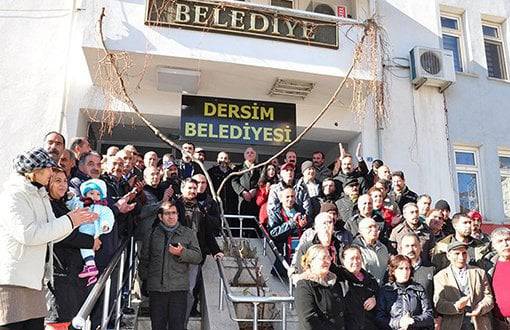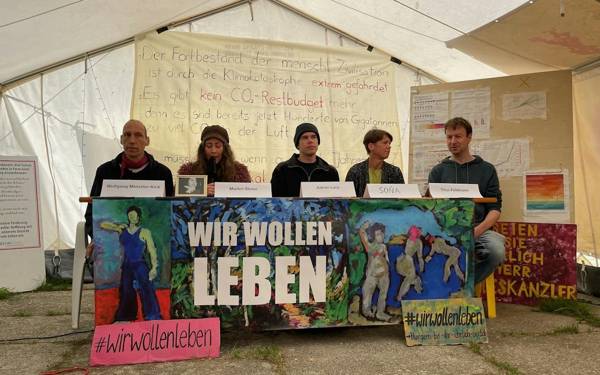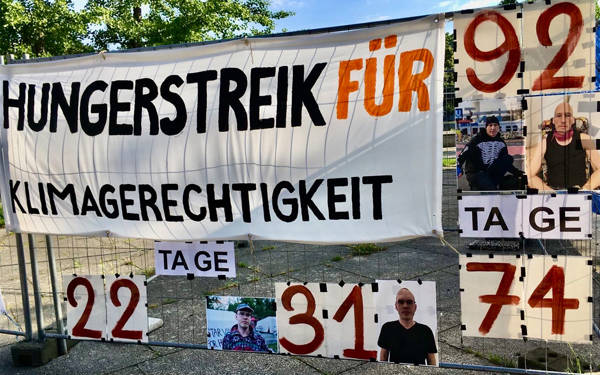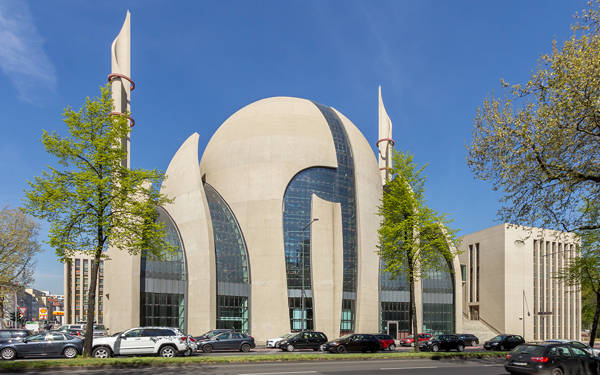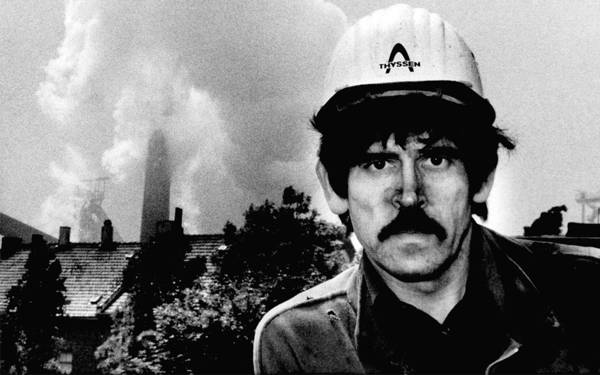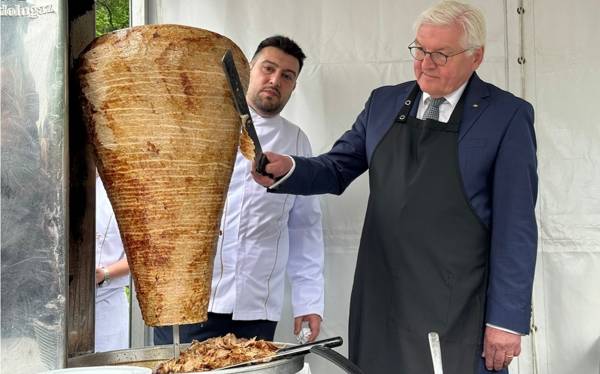It was in September 2021 when I was gonna visit Tunceli for the first time. Or at least, that’s what I thought when I bought my bus ticket. It was written out there: Mardin to Tunceli. But when I arrived at the bus station right in the city center and started walking around, I was surprised to see Dersim everywhere: It was on the signs of a few restaurants and hotels and on bags and fridge magnets in the souvenir shops. I asked people in the streets, and they explained to me that Dersim is the Kurdish or Zazaki name for Tunceli. And they said that they preferred to use Dersim, that it was the ‘real’ name of the city. So, from that day on, the city was always Dersim in my mind.
Just like some other cities that I traveled to, the name used by locals was not always the same as on Google Maps. I used Antep instead of Gaziantep, which translates to 'Veteran Antep,' and Urfa instead of Şanlıurfa, meaning 'Glorious Urfa.' These names were given by the government to honor the cities for their resistance against allied forces after World War I, during a period of conflict in Asia Minor that eventually led to the foundation of the Republic of Turkey. Because it should be up to the people who live there, I thought, how to call their city.
Fast forward to February of 2024. I am visiting a close friend of mine in Antalya. We are sitting in a breakfast place with another friend of his. I am telling a story of my travels in eastern Turkey. When I mention Dersim, my friend suddenly looks at me and says: “It’s Tunceli, not Dersim. You can’t use this name.” I already know that there are strong opinions in Turkey about issues like this. But what is his problem with this, I am thinking. I tell him that I talked to people in Dersim who told me they prefer to use this name. I tell them that I slept on a guy’s couch who told me that Dersim is the name his parents and grandparents use and that’s why he uses it, too.
My friend says something to his other friend in Turkish and they both start laughing out loud. “Then you stayed at a sympathizer’s home!”, he giggles. He refers to the Kurdistan Workers’ Party (PKK), which has waged an armed insurgency against the Turkish state for four decades.
I am intrigued. I don’t know what to say to that. The people whom I talked to didn’t seem like terrorists to me, not at all. But can I be sure of that? Am I really wrong for using this name, did these people use my naïveté to make me carry around a terrorist ideology? I didn’t think so. But after all, my friend is the person who taught me most of the things that I know about Turkey.
History of ‘Tunceli’
This topic has been on my mind since then. I researched the history of the city and its name. What is appropriate for me as a foreigner to use? At bianet, I asked around in the office: What do my colleagues think? I am surprised. Not only do they think that I can say Dersim, but it is also the one that’s used on bianet.org.
One colleague tells me that she has a good friend whom I can talk to. So, I call İsmet Konak, an academic and Kurdish studies expert based in Diyarbakır. We talk about the history of the city and the name change. He tells me how Dersim was a symbol of uprising and resistance against the assimilation policies of the young Turkish republic. He tells me about the Dersim massacre where an estimated 40.000 people were killed when the army cracked down on the insurgents in 1937-38. People in Dersim, he says, still think of this massacre when they hear the name Tunceli. Most of them, İsmet says, are not terrorists.In fact, they support the republic, with the city being the only one in the country’s Kurdish-populated southeast where the Republican People’s Party (CHP), the founding party of the republic, has a strong presence. But it makes them angry when their homeland is called by the ‘name of the conqueror.’ Tunceli literally means 'the land of bronze,' and this name was given to the city shortly before the offensive, which some deem a genocide.
Dersim can refer both to the city and the province of Tunceli, although the former name of the city was Kalan. The city has a population of 36,000 people. It is the capital of the province with the same name, which is home to close to 90.000 people. The majority of the people living there are Kurds, often Zaza and Alevi. Dersim was always hard to control, mostly because it is surrounded by densely forested mountains. Until the 19th century, when the Ottoman Empire began transitioning into a modern centralized state, it was relatively independent, as was most of the Kurdistan region.
When the Turkish republic was founded in 1923 by Mustafa Kemal Atatürk, it relied on a policy of Turkification, enforcing a shared Turkish and Sunni identity while suppressing any identity that differed from it. For the Kurds, the Turkification policies manifested in referring to them as 'mountain Turks.'
The province of Dersim was renamed to Tunceli in 1936 by the so called Tunceli Law, which put the region under strict military administration. Turkey started a resettlement campaign, aiming to dissolve Kurdish identity. They started to move Kurdish families to other parts of the country while introducing Turks in their place. Village names were changed to Turkish names. A year later, the military closed the region and didn’t allow people to enter or exit. The Kurdish tribal leader Sayid Rıza opposed this state intervention and demanded independence. This led to the Dersim rebellion in 1938, the biggest Kurdish uprising so far.
The Turkish republic, apparently by Atatürk’s order, deployed around 25.000 soldiers to end this insurgency and send a warning to all Kurdish aspirations for independence. This operation bronze fist, Tunceli in Turkish, was meant as a power demonstration to all the non-assimilating peoples in Turkey, showing them that rebellion was impossible. In the following military operations, Turkish soldiers bombed the city with airplanes, used poisonous gas and raided villages, even those that were supporting them. Estimates range from 20,000 to 70,000 people that were killed by the Turkish army in 1938. Around 100,000 people were relocated from Dersim and resettled in other provinces. Today, many experts classify the Dersim massacre as a genocide. The former city of Kalan was renamed to Tunceli and became the new capital of the province in 1964. One of the pilots bombing Dersim allegedly was Atatürk’s adoptive daughter Sabiha Gökçen.
I am devastated after researching all this history. I was traveling in this city without seeing or feeling any of this? So that’s what’s in a name? I read a great feature story by Jaclynn Ashly for Jacobin. She describes how the events of 1938 still haunt people in Dersim today. She meets former PKK militants and people who are trying to hold the memories alive by building memorials. I now understand that the reason why people use the name Dersim is much deeper than I thought. But then, why does my friend say that I shouldn’t use this name?
"I am a tourist"
I call him again. I tell him about the article I plan on writing, and I ask him why he thinks I shouldn’t say Dersim. This time he sounds much less opinionated. It now sounds like it was a joke when he told me I shouldn’t say Dersim. I didn’t feel like that at the time. He says that he personally doesn’t care which name I use. But many people in the west of Turkey can feel offended when someone uses Dersim, he explains, especially nationalists and old people. I could still use it, he says, because I am a tourist. But when Turkish people use Dersim, others might assume that they sympathize with PKK. He says that this is a generalization of course and just because someone uses the original name of their city it doesn’t mean that they are terrorists. And there’s another thing which would make some people angry when I use Dersim, he says. People might find it disrespectful towards Atatürk, who changed the cities name to Tunceli. I am still wondering why people care so much about a name being disrespectful for Atatürk, who doesn’t care anymore, but so little about it being disrespectful for thousands of people living there.
In 2019, the municipal council of Tunceli announced that they were to change the name on their signboard from Tunceli Belediyesi (Tunceli Municipality) to Dersim Belediyesi by a majority of votes. They also announced that they were to carry out their municipal services not only in Turkish but also in Kurdish and Zazaki. This provoked a huge backlash, especially the far-right was furious. Social media was flooded with the hashtag “#DersimDegilTunceli” which means “it’s not Dersim, it’s Tunceli”. The Communist Party’s mayor Fatih Mehmet Maçoğlu defended himself by saying that he was just following the will of the people and that the city already had a football club and a newspaper called Dersim. The decision was later revoked by a government appointed trustee.
I think of president Erdoğan and how in 2021, he asked all other countries to refer to Turkey as “Türkiye” in the future. “Türkiye is the best representation and expression of the Turkish people’s culture, civilization and values.”, Erdoğan said. That’s exactly what people in Dersim told me. So, I will hold it with president Recep Tayyip Erdoğan and respect how people want me to call the place where they live. Especially when that wish comes from the people and not from their president. (NS/VK)






